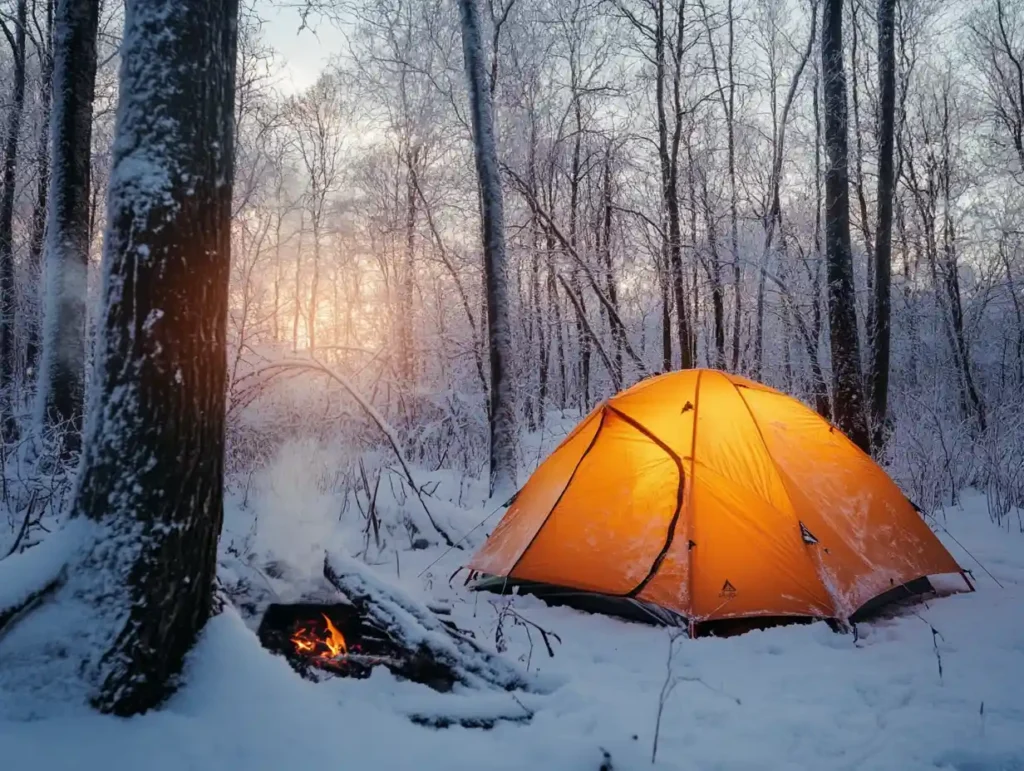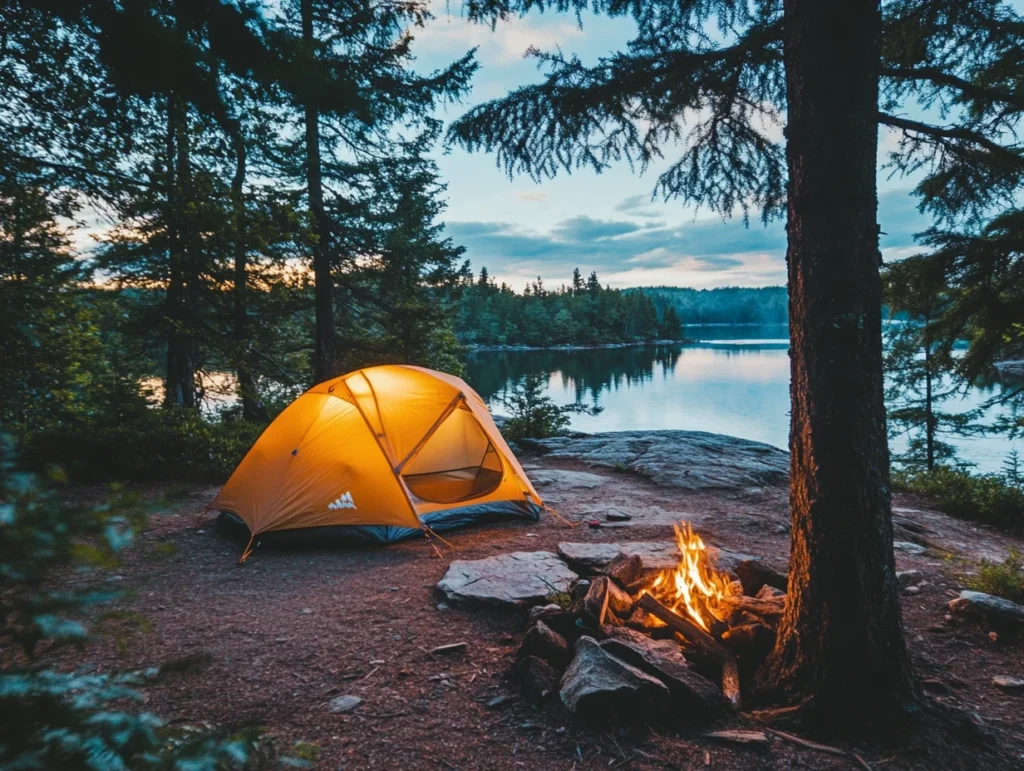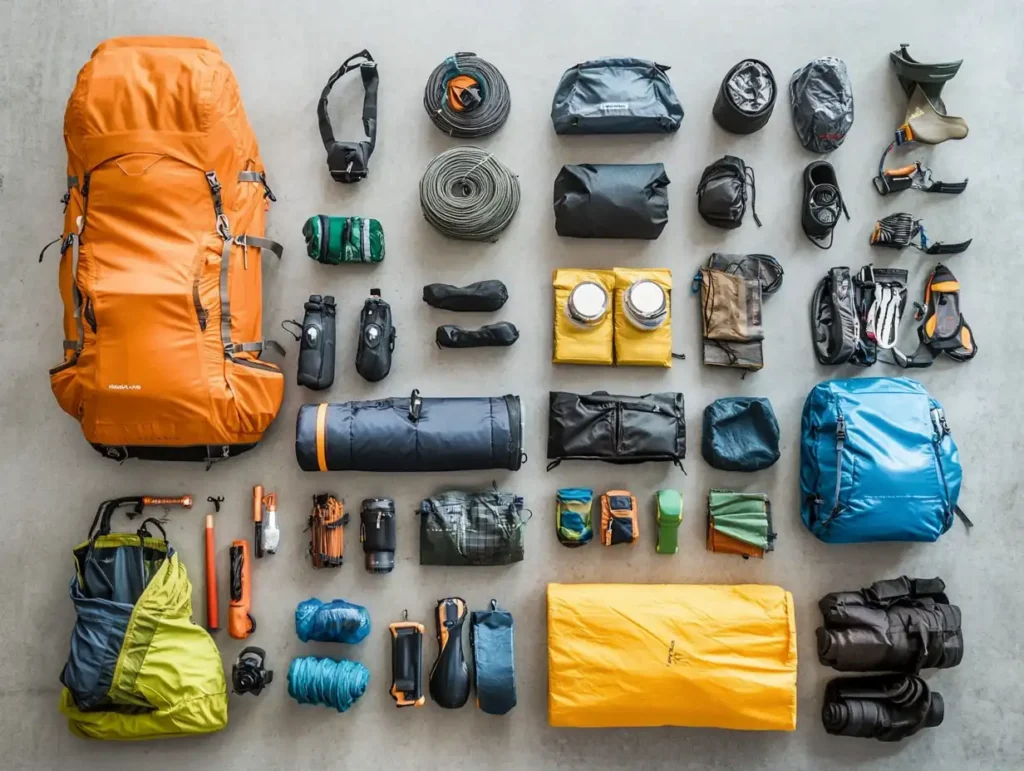Did you know that winter camping can burn up to 45% more calories than summer camping? That’s right, your body works overtime to keep you warm!
While the thought of camping in freezing temperatures might send shivers down your spine, winter camping offers a unique and rewarding experience that every outdoor enthusiast should try at least once.
I remember my first winter camping trip like it was yesterday. I was woefully unprepared, shivering through the night and questioning my life choices. But boy, oh boy, did I learn a lot!
Then, in my British Army career, I did some training exercises in the USA when the temperature dropped below zero at night. You soon realise that the kit you have is woefully inadequate for the conditions.
After years of camping and many cold nights under the stars, I’m here to share my top 15 winter camping tips. These tips will help you stay safe, warm, and enjoy your snowy adventure.
Winter camping presents unique challenges, but it also offers incredible rewards. Imagine waking up to a pristine, snow-covered landscape, with no crowds in sight. The solitude, the crisp air, and the beautiful winter scenery make it all worthwhile.
Plus, there’s something truly satisfying about conquering the elements and pushing your outdoor skills to the next level.
In this guide, we’ll cover everything from choosing the right gear to staying warm, safe, and comfortable in sub-zero temperatures. So grab a hot cocoa, and let’s dive into the wonderful world of winter camping!
Choose the Right Gear for Winter Conditions
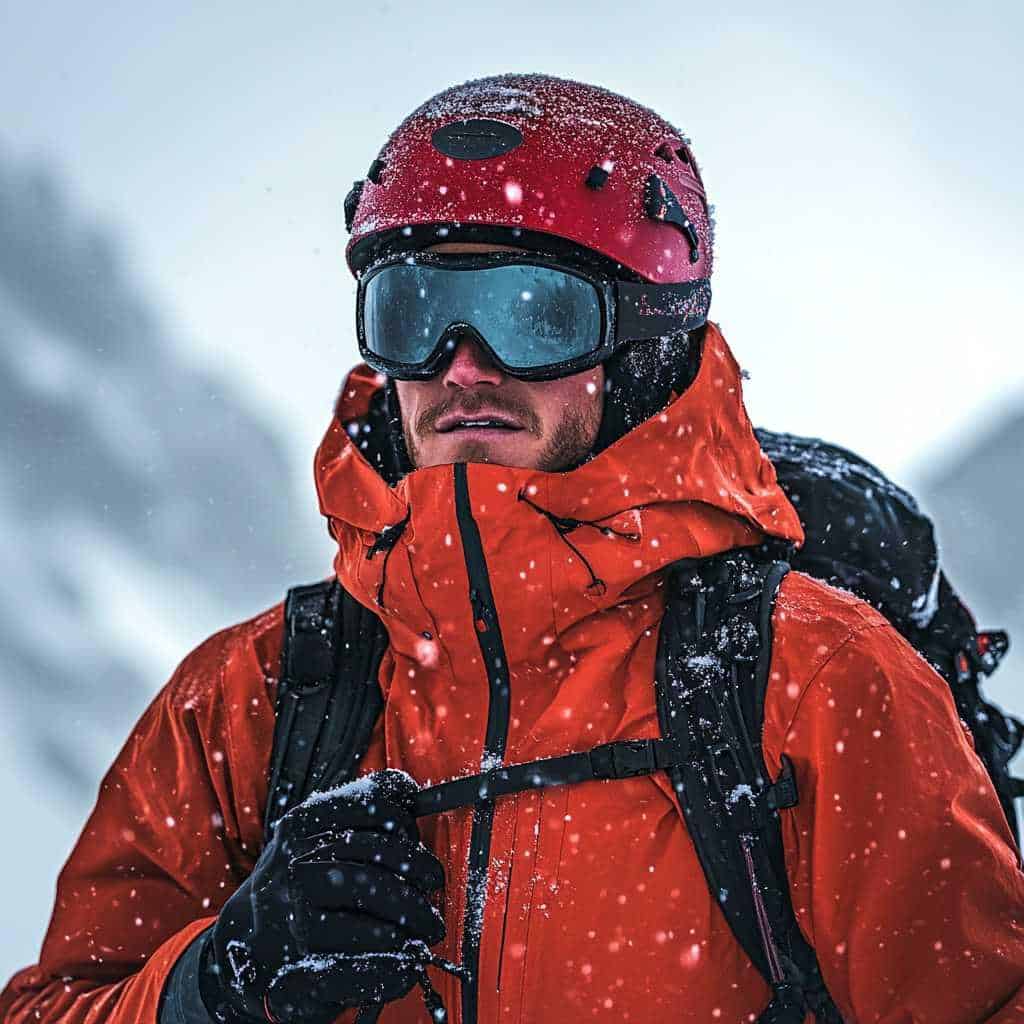
Let me tell you, nothing ruins a winter camping trip faster than inadequate gear. Trust me, a friend of mine learned this the hard way when his three-season tent collapsed under the weight of heavy snow on my second winter outing. Yikes!
When it comes to winter camping gear, you’ll want to invest in:
• Four-season tents: These bad boys are designed to withstand strong winds and heavy snow loads. Look for tents with sturdy poles and a low, aerodynamic profile.
• Winter-rated sleeping bags: Don’t skimp here! A good winter sleeping bag should be rated for at least 10°F lower than the coldest temperature you expect to face. I once tried to tough it out with my summer bag, and let’s just say I didn’t get much sleep that night!
• Insulated sleeping pads: Your sleeping bag alone won’t cut it. You need a barrier between you and the cold ground. Look for sleeping pads with an R-value of at least five for winter camping.
• Winter-specific clothing: We’ll dive deeper into layering later, but make sure you have waterproof, insulated boots, warm mittens, or gloves, and a cosy hat.
Master the Art of Layering Clothes
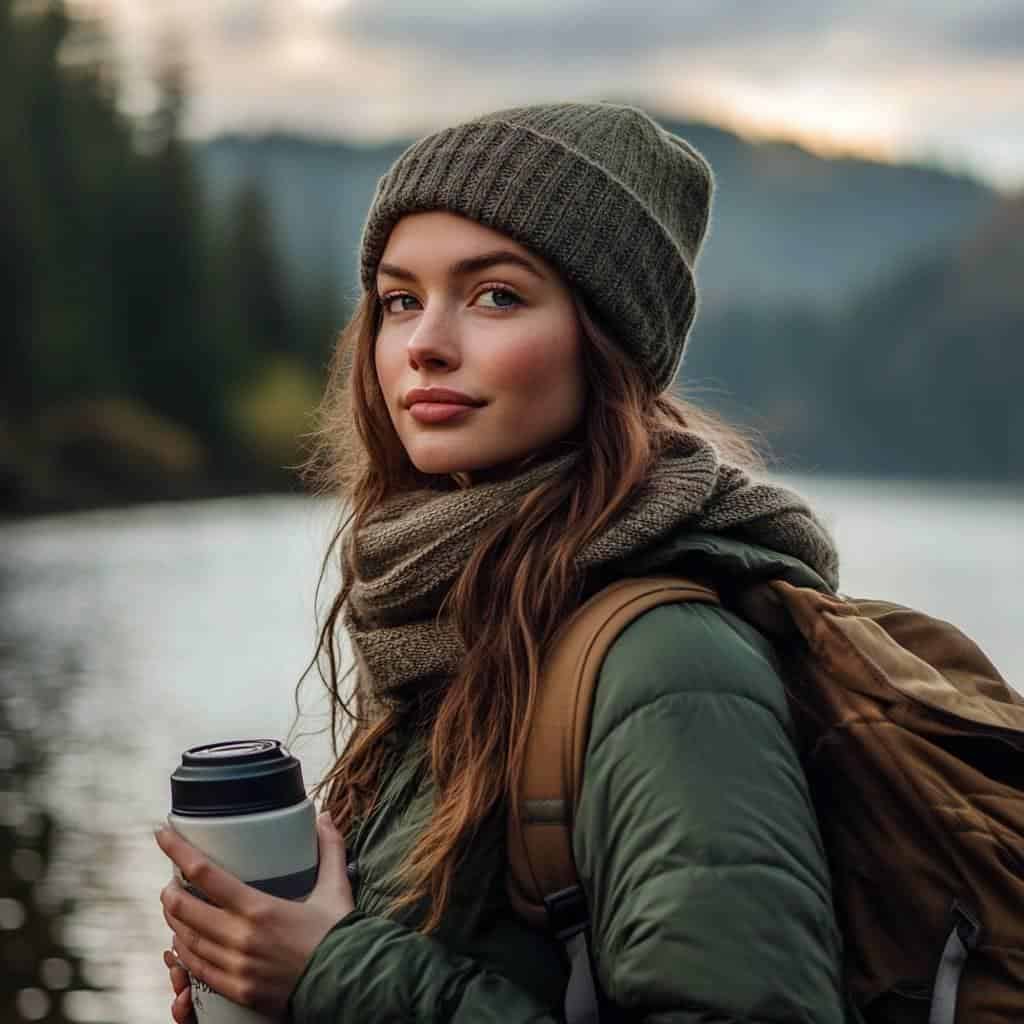
Ah, layering – the secret sauce of staying warm in the winter wilderness! Here’s my tried-and-true layering system:
• Base layer: Start with moisture-wicking materials like merino wool or synthetic fabrics. Avoid cotton like the plague – it retains moisture and can lead to hypothermia.
• Insulating middle layer: Fleece or wool work great here. I’m a big fan of puffy jackets for extra warmth.
• Waterproof and windproof outer layer: This is your shield against the elements. Make sure it’s breathable to prevent sweat buildup.
Pro tip: Always pack an extra set of base layers. Changing into dry clothes before bed can make a world of difference in your comfort level.
Protect Your Extremities
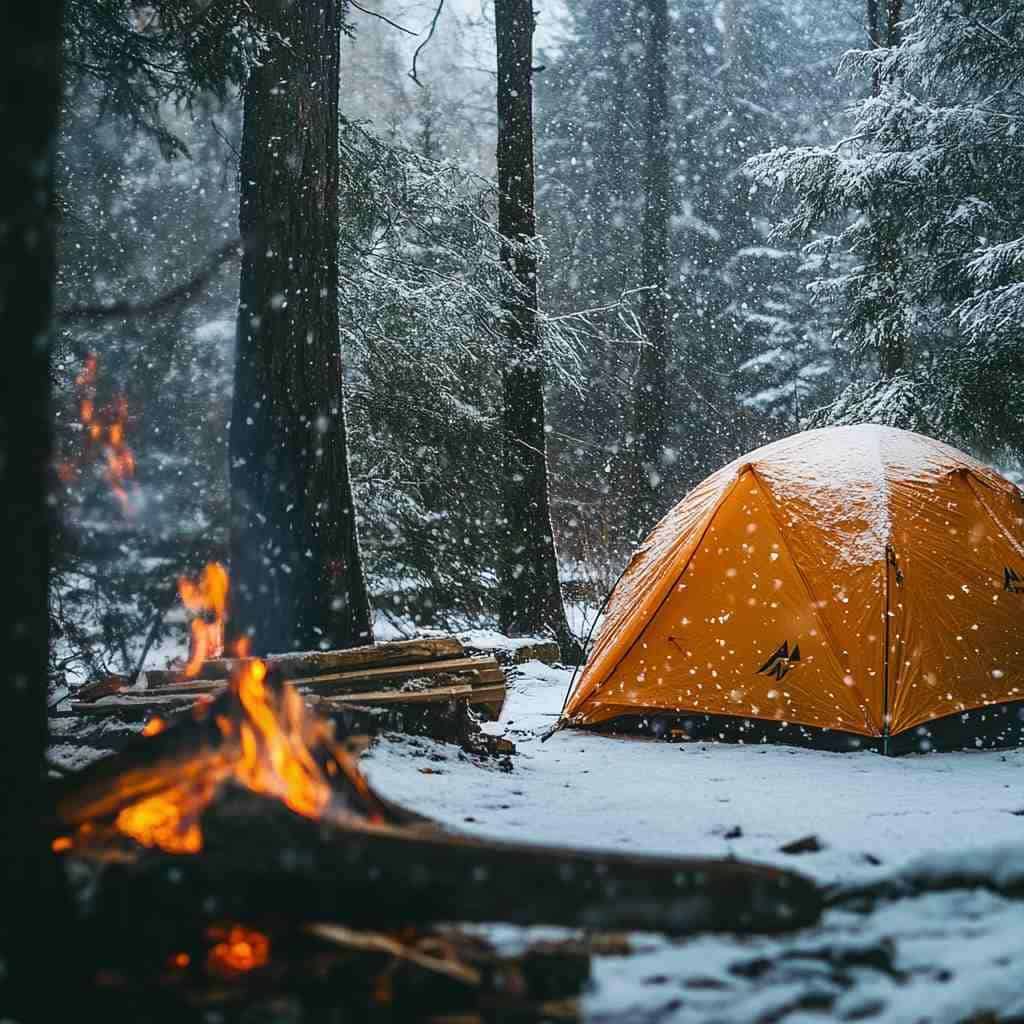
Cold fingers and toes can turn a fun winter camping trip into a miserable experience real quick. Here’s how to keep those digits toasty:
• Proper winter boots: Insulated, waterproof boots are a must. Make sure they’re roomy enough for thick socks and toe wiggling.
• Warm socks: Wool or synthetic socks are your best bet. Bring extras!
• Insulated gloves or mittens: I prefer mittens for their superior warmth, but gloves offer better dexterity. Bring both if you can.
• Hats, balaclavas, and neck gaiters: Don’t forget to protect your head and neck. A lot of heat escapes through these areas.
• Hand and foot warmers: These little packets of warmth can be lifesavers on especially cold nights.
Stay Hydrated and Well-Fed
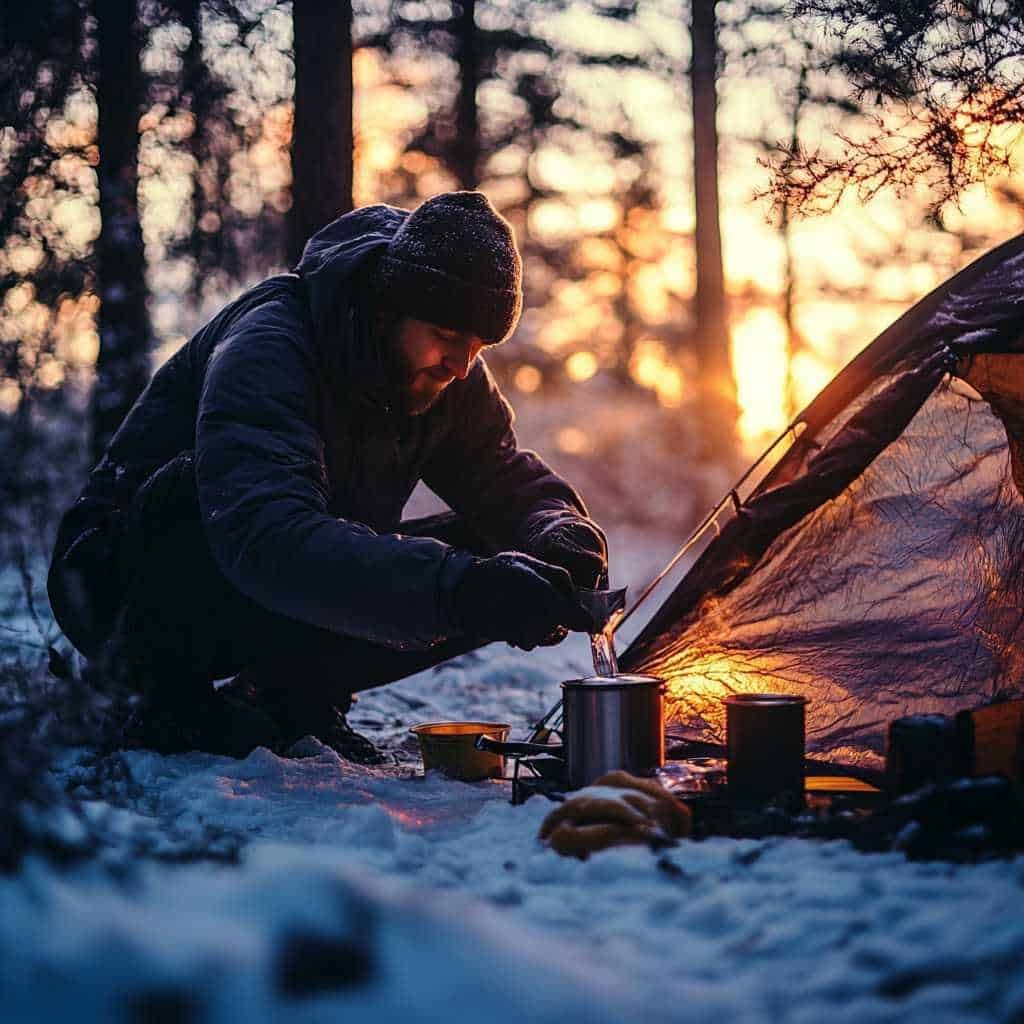
It’s easy to forget about drinking water when you’re surrounded by snow, but trust me, staying hydrated is crucial in cold weather. Your body is working overtime to keep warm, and proper hydration helps maintain your body temperature.
Here are some tips to stay hydrated and well-fed:
• Use insulated water bottles to prevent freezing. I learned this lesson the hard way when my water bottle turned into a solid ice block overnight!
• Drink plenty of water throughout the day, even if you don’t feel thirsty.
• Pack high-calorie, nutrient-dense foods. Your body needs the extra fuel to stay warm.
• Bring warm beverage options like tea, coffee, or hot chocolate. Nothing beats wrapping your hands around a steaming mug on a cold morning!
Pro tip: Fill a hot water bottle before bed and tuck it into your sleeping bag. It’s like having a personal heater, and you’ll have unfrozen water to drink in the morning. Talk about a win-win!
Choose Your Campsite Wisely
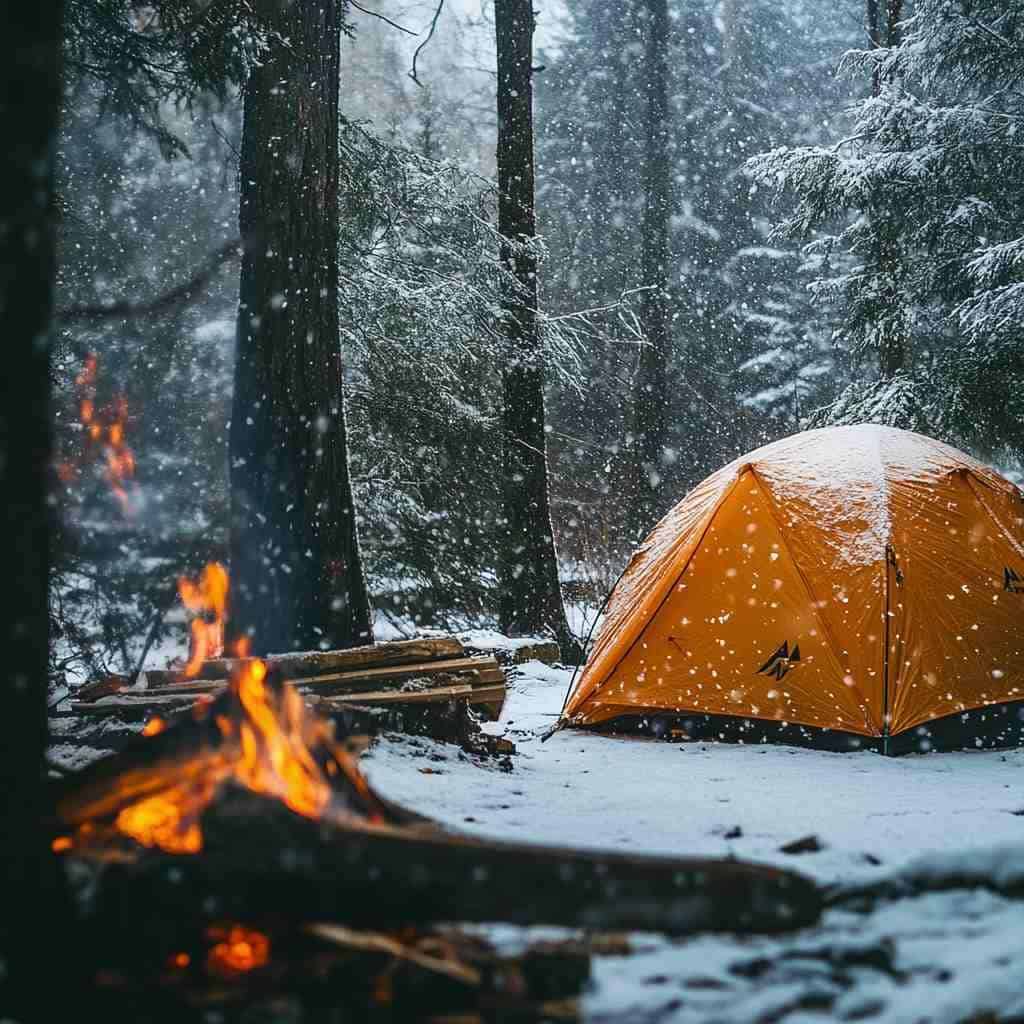
Selecting the right campsite can make or break your winter camping experience. Here’s what to look for:
• Natural windbreaks: Trees or rock formations can provide shelter from biting winds.
• Avoid avalanche-prone areas: Always check avalanche forecasts and stay away from steep slopes.
• Access to resources: Make sure you’re near water sources (even if they’re frozen) and firewood.
• Proper snow camping techniques: If you’re camping on snow, pack it down before setting up your tent to create a solid platform.
When it comes to tent camping in winter, remember that your tent is your fortress against the elements. Choose a spot that’s slightly elevated to avoid cold air pooling, and always orient your tent with the door facing away from the wind. You don’t want to be fumbling with a door flapping wildly in icy gusts!
Master Fire-Starting in Cold and Wet Conditions
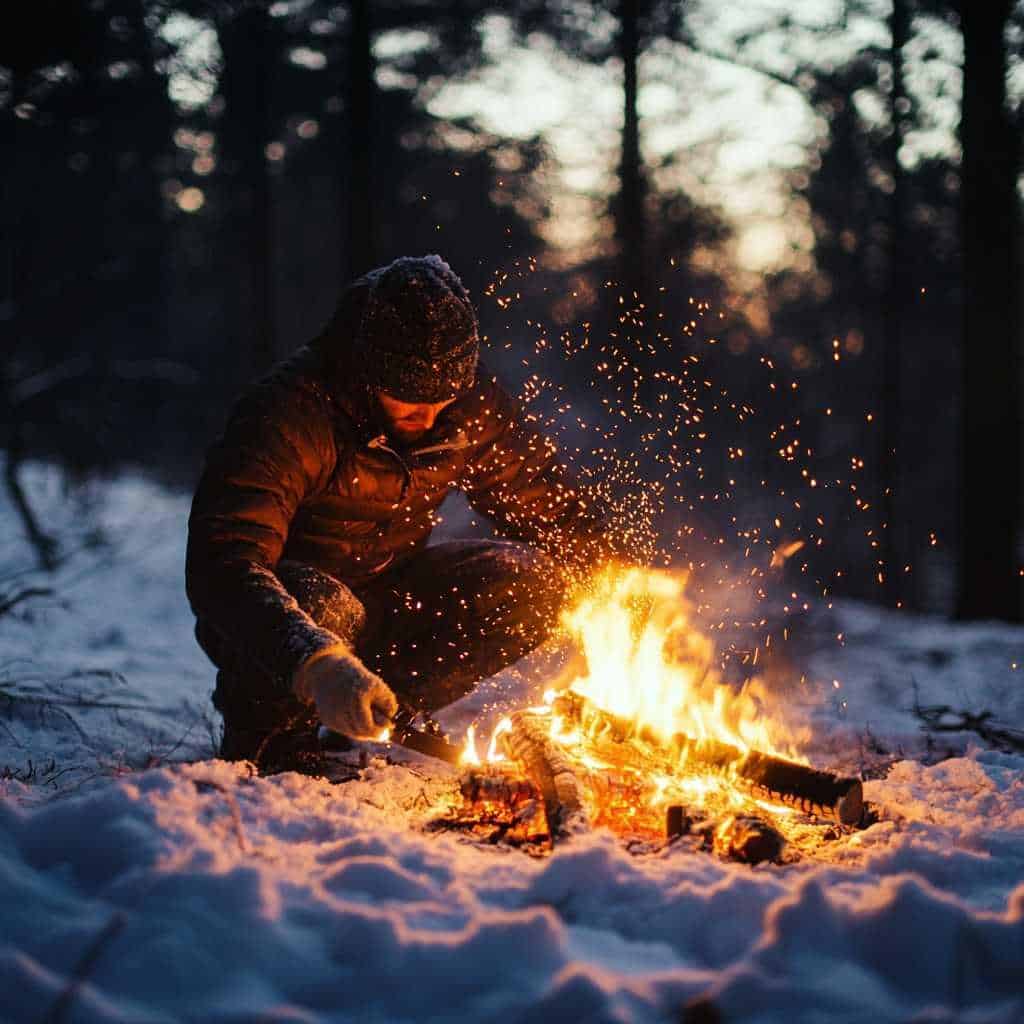
There’s nothing quite like a warm campfire on a cold winter night. But starting a fire in snowy conditions can be tricky. Here are some tips:
• Bring waterproof fire-starting materials like storm-proof matches or a reliable lighter.
• Collect dry wood and kindling before it gets dark. Look for dead branches still attached to trees – they’re usually drier than wood on the ground.
• Use fire starters or dryer lint soaked in petroleum jelly to help get your fire going.
• Always practice fire safety and follow local laws. Remember, Leave No Trace principles apply in winter too!
Insulate Your Sleeping Area
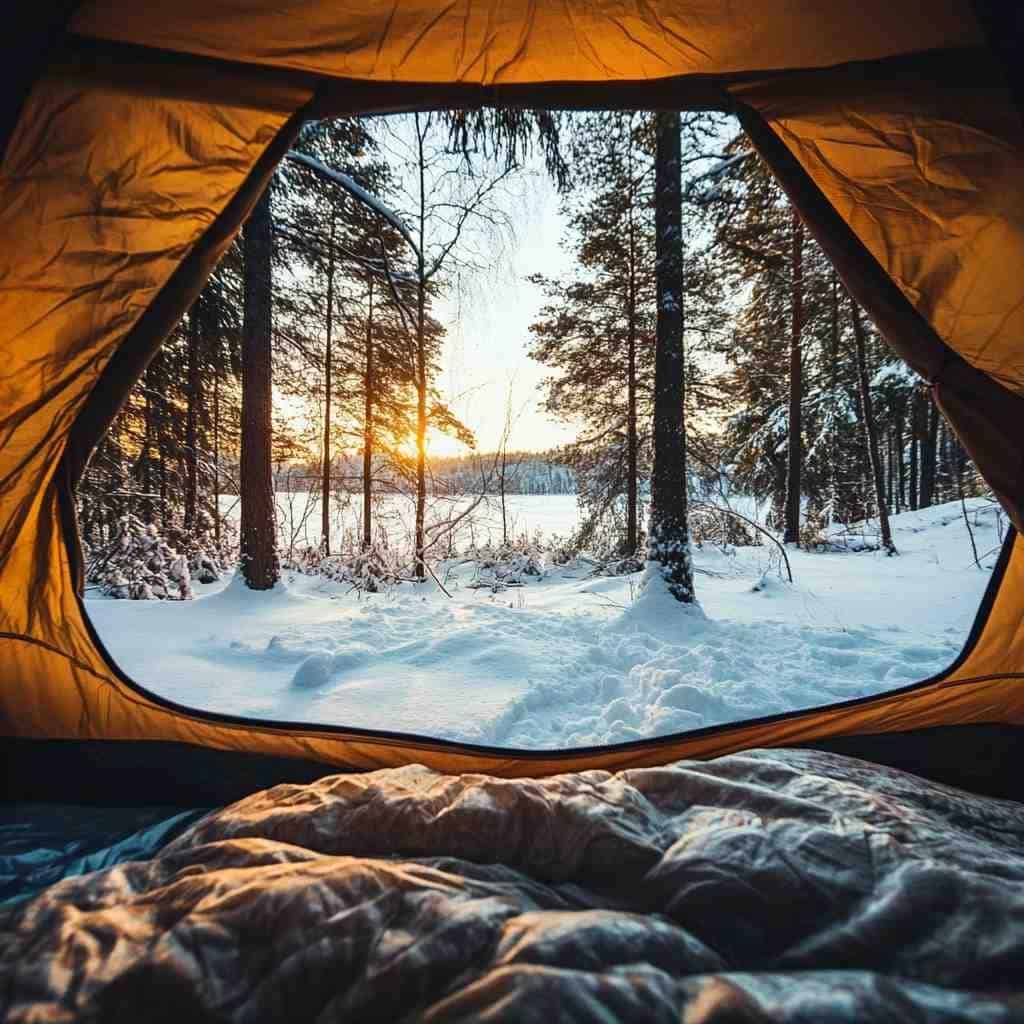
A good night’s sleep is essential for enjoying your winter camping trip. Here’s how to create a cosy sleeping area:
• Use a closed-cell foam pad under your inflatable sleeping pad for extra insulation from the cold ground.
• Line your sleeping bag with a mylar emergency blanket to reflect heat back to your body.
• Fill a water bottle with hot water and place it in your sleeping bag for extra warmth. Just make sure it’s sealed tight!
• Wear a hat to bed – you lose a lot of heat through your head.
Manage Condensation and Moisture
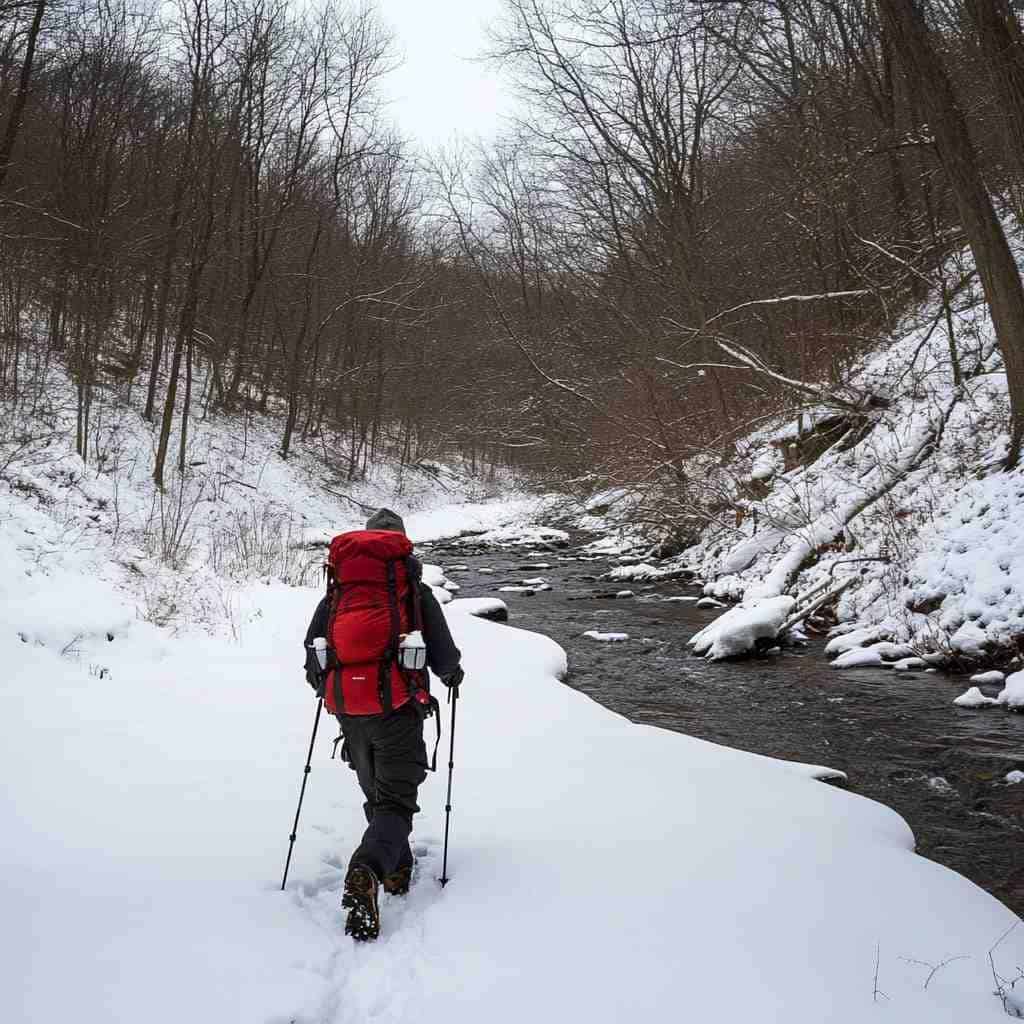
Moisture is the enemy of warmth in winter camping. Here’s how to keep things dry:
• Ventilate your tent to reduce condensation. Yes, even in freezing temperatures!
• Brush snow and ice off your gear before bringing it into the tent.
• Use vapour barrier liners in your sleeping bag to prevent your body moisture from reaching your insulation.
• Change into dry clothes before bed. Sleeping in damp clothes is a recipe for a cold night.
Let’s talk about choosing a sleeping bag for winter camping. It’s not just about temperature ratings – you need to consider the bag’s shape, insulation type, and features.
Mummy bags are great for minimising heat loss, while down insulation offers the best warmth-to-weight ratio. Look for bags with draft collars and zipper baffles to prevent cold spots.
And remember, a sleeping bag is just one part of your sleep system – pair it with a good sleeping pad to maximize warmth!
Navigate Safely in Winter Conditions
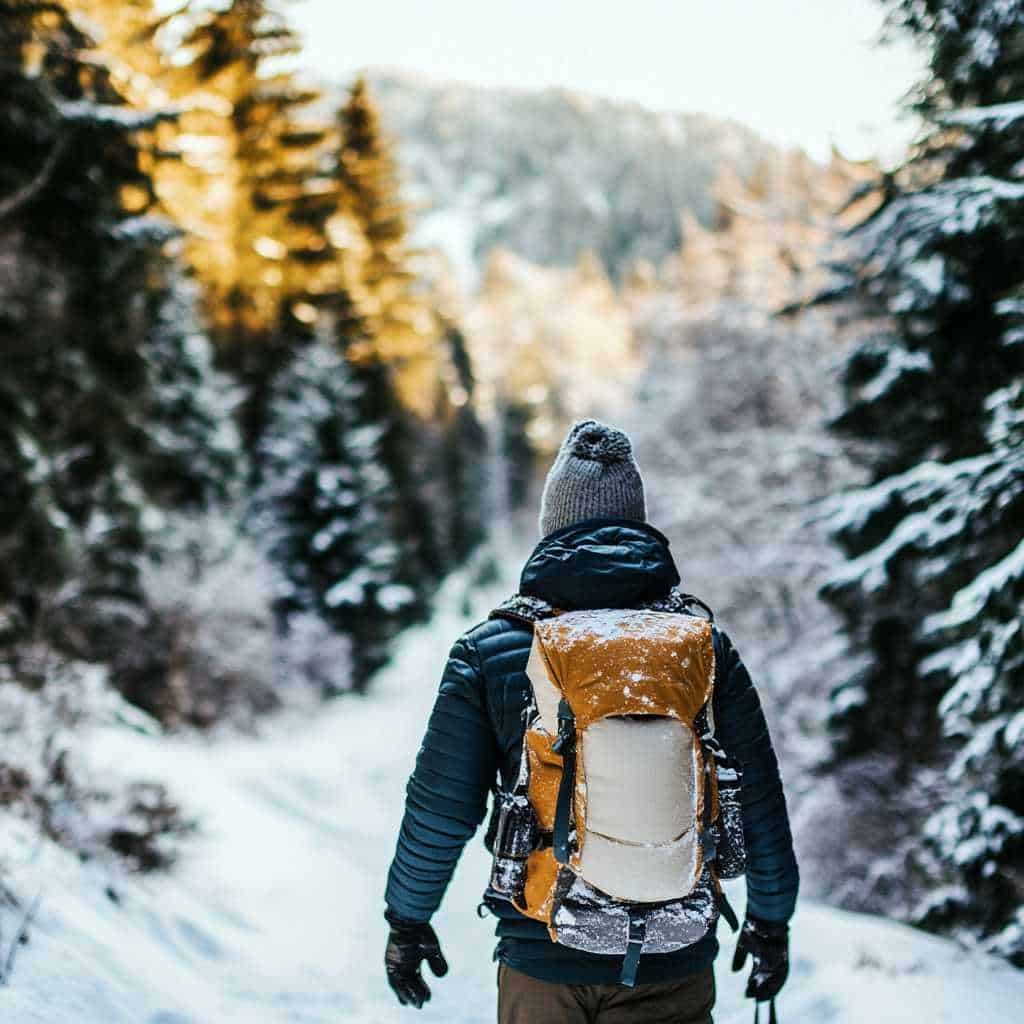
Winter landscapes can be disorienting, and conditions can change quickly. Stay safe with these navigation tips:
• Bring a map and compass, and know how to use them. Don’t rely solely on electronic devices – batteries die quickly in cold weather.
• Familiarise yourself with winter terrain features and how they might affect your route.
• Plan for shorter days and longer travel times. Everything takes longer in snow!
• Carry emergency signalling devices like a whistle or signal mirror.
Prepare for Winter-Specific Emergencies
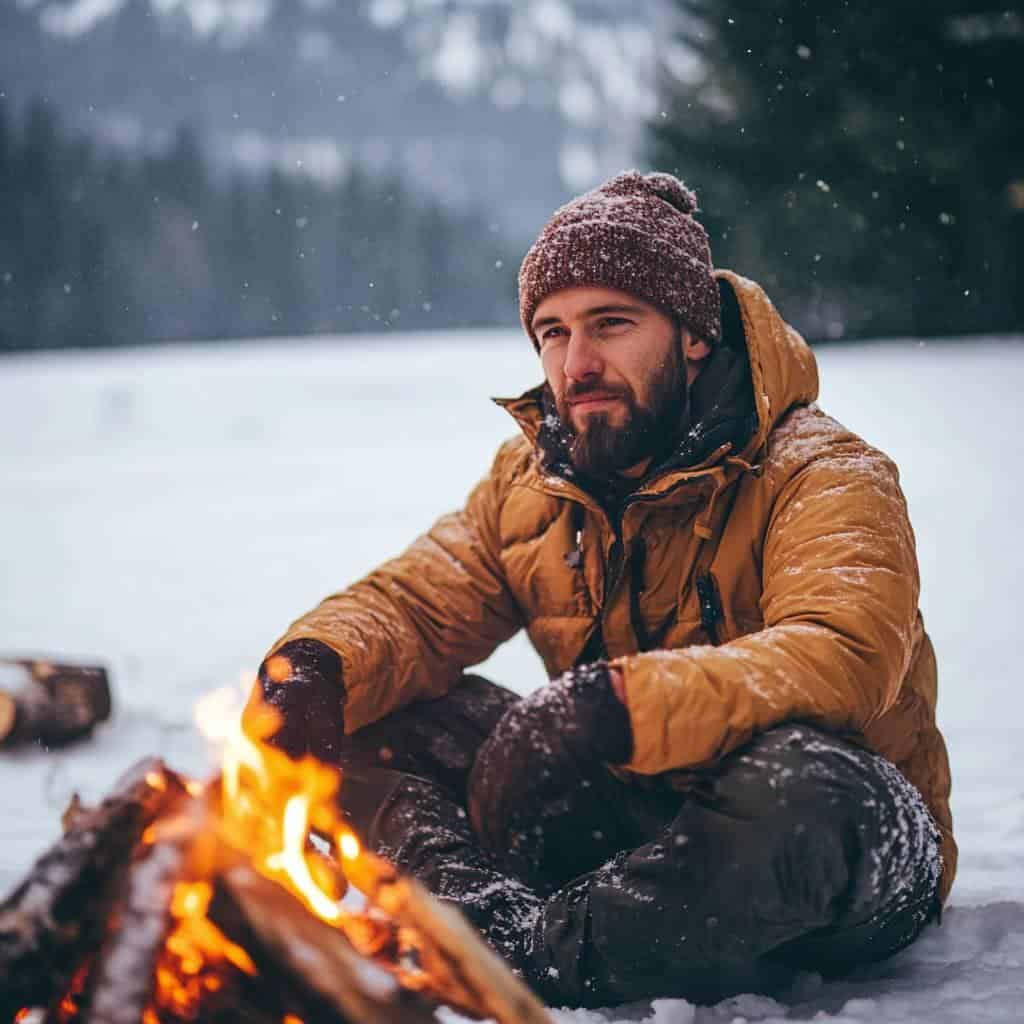
Winter camping comes with its own set of risks. Be prepared by:
• Learning to recognise and treat hypothermia and frostbite.
• Taking an avalanche safety course if you’ll be in avalanche terrain.
• Practicing building emergency snow shelters.
• Packing a winter-specific first aid kit with items like chemical heat packs and blister treatment.
Practice Leave No Trace in Winter
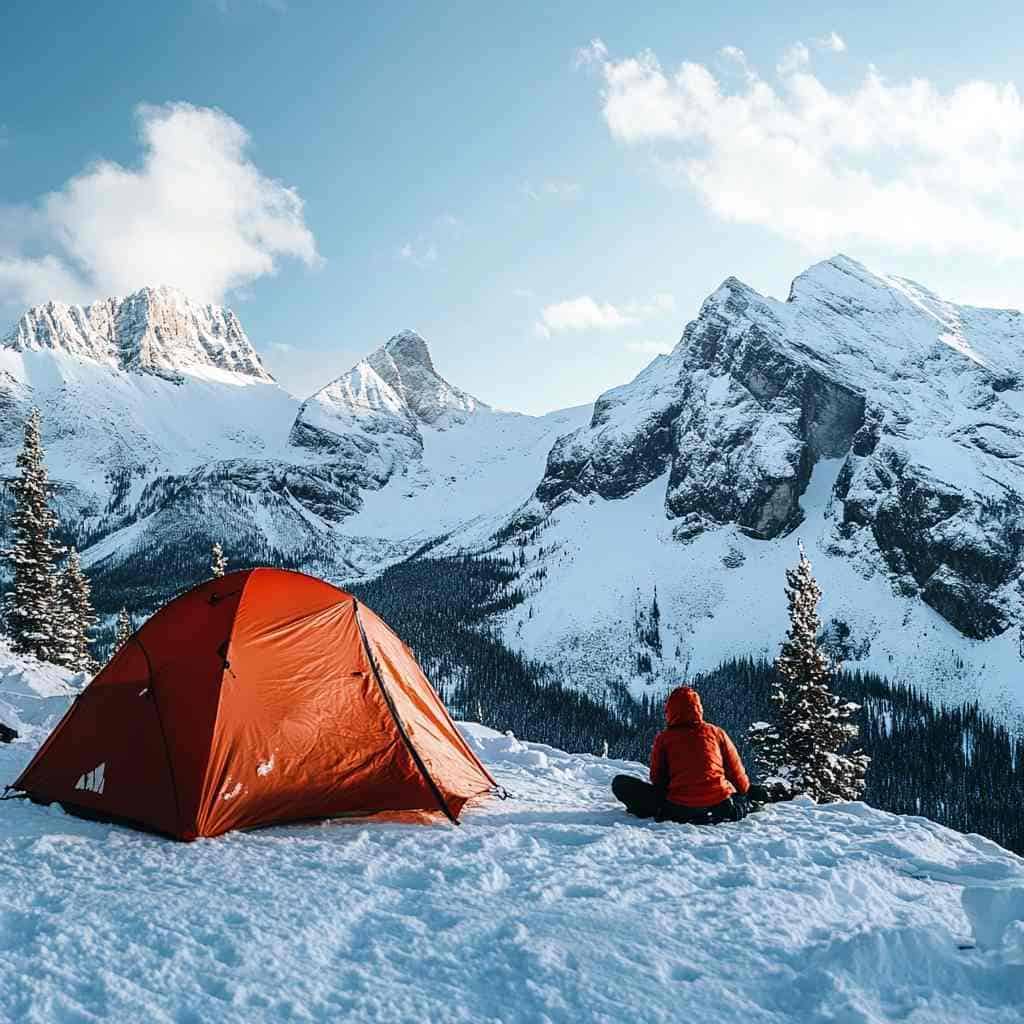
Responsible camping is crucial year-round. In winter:
• Pack out all waste – it doesn’t decompose in frozen conditions.
• Minimise your impact on frozen vegetation.
• Respect winter wildlife – they’re already stressed by harsh conditions.
• Follow local guidelines for winter campfires.
Plan Your Trip Carefully
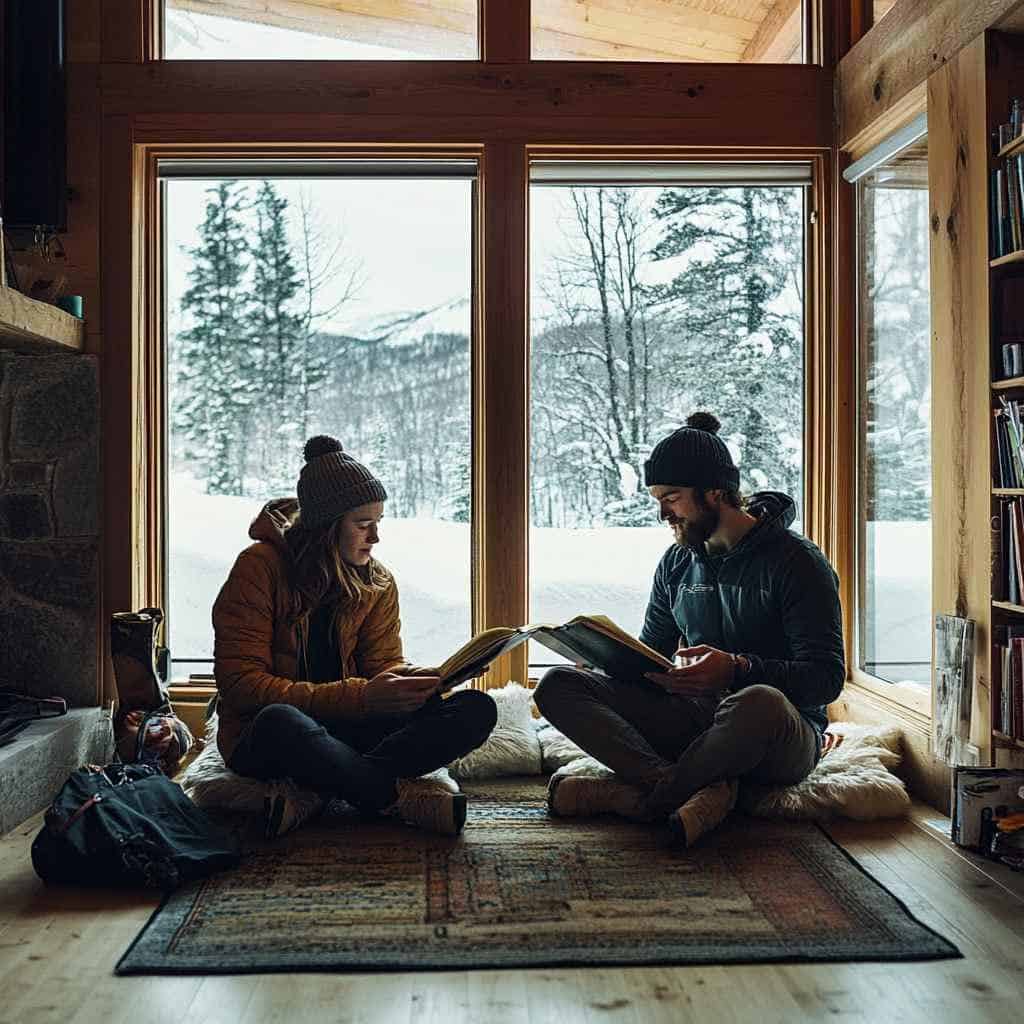
Proper planning is key to a successful winter camping trip:
• Always check the weather forecast before you go.
• Inform someone of your plans and expected return time.
• Allow extra time for winter travel – everything takes longer in the snow!
• Have a solid backup plan in case conditions change.
Learn to Read Winter Weather Patterns
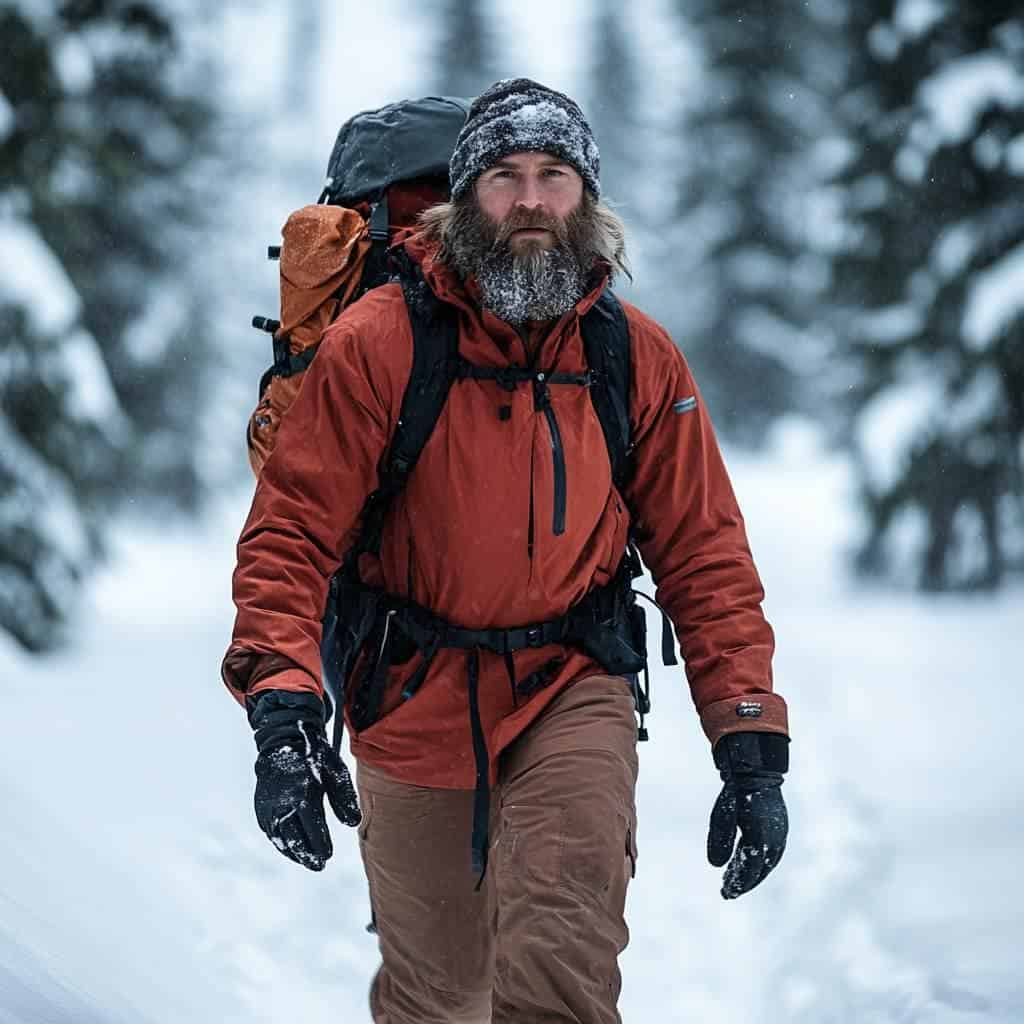
Understanding winter weather can keep you safe and comfortable:
• Familiarise yourself with winter storm warnings and what they mean.
• Learn to recognise signs of changing weather.
• Be prepared to adjust your plans based on conditions.
• Use reliable weather apps and tools designed for winter outdoor activities.
Master Winter Camping Cooking Techniques
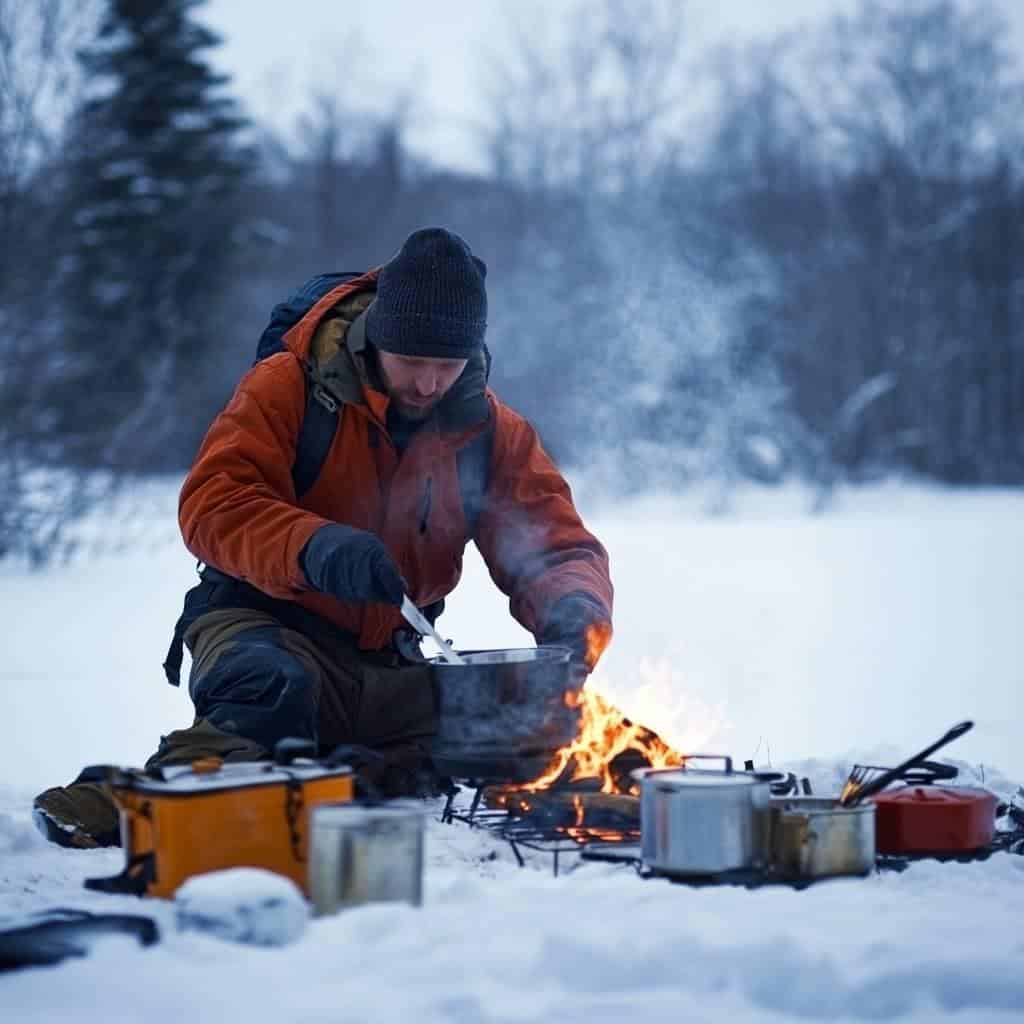
Cooking in winter conditions presents unique challenges:
• Choose a stove that performs well in cold weather. Liquid-fuel stoves are generally more reliable than canister stoves in extreme cold.
• Learn efficient techniques for melting snow for water.
• Keep your fuel warm to prevent it from freezing.
• Pack simple, quick-cooking meals to minimise time spent cooking in the cold.
Here’s a fun fact: Your body generates heat when digesting food. So, eating a hearty meal before bed can actually help keep you warm through the night. It’s like stoking your internal furnace!
Just be careful not to overdo it – you don’t want to be sweating in your sleeping bag, as that can lead to dangerous heat loss later.
Embrace the Winter Camping Experience
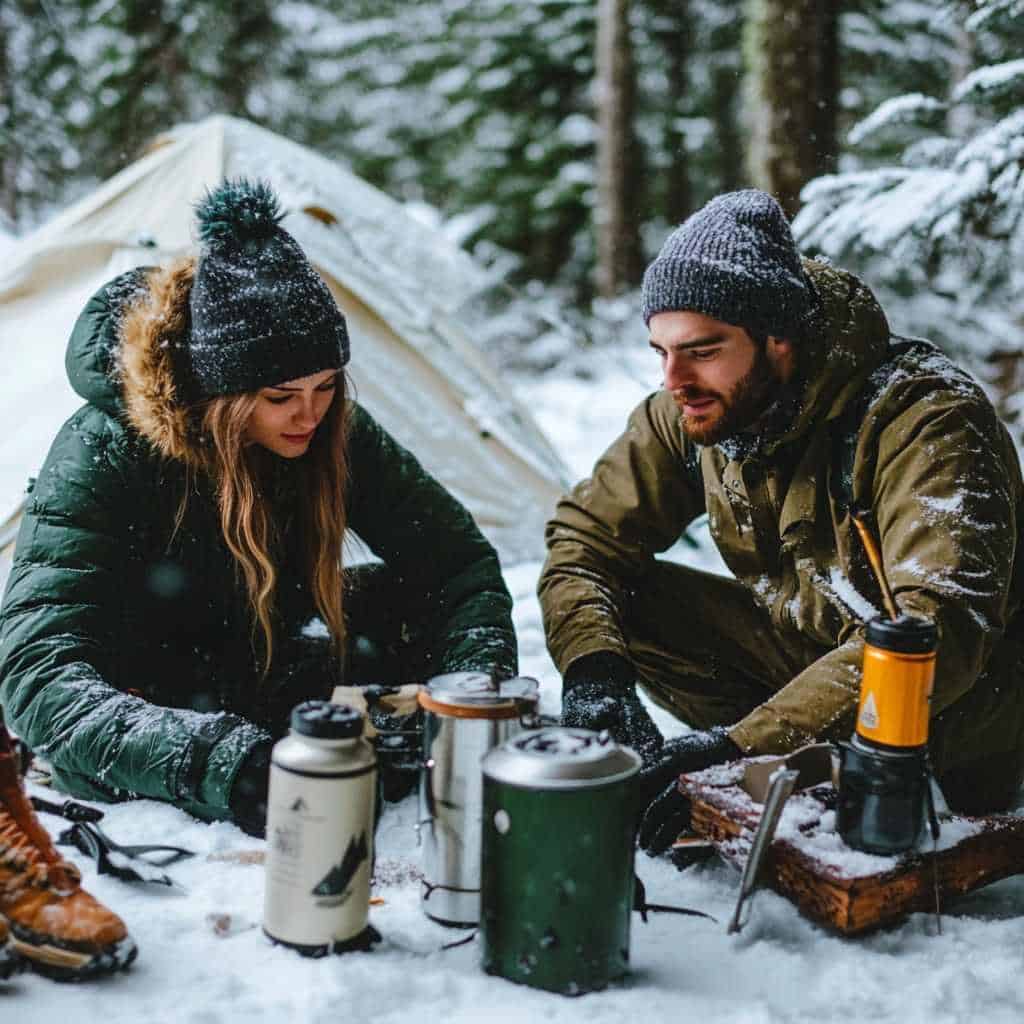
Finally, remember to enjoy the unique beauty of winter camping:
• Try winter-specific activities like snowshoeing or cross-country skiing.
• Practice your photography skills – winter landscapes are stunning!
• Take time to appreciate the quiet solitude of the winter wilderness.
• Prepare mentally for the challenges – a positive attitude goes a long way!
Understanding your body heat loss heat in cold weather can help you stay warmer. Heat loss occurs through conduction (contact with cold surfaces), convection (wind chill), radiation (your body emitting heat), and evaporation (sweating).
By addressing each of these – using insulated gear, blocking wind, covering exposed skin, and managing moisture – you can significantly reduce heat loss and stay cosy even in frigid conditions.
Enjoy the Chill: Your Gateway to Winter Wonderland Adventures
Winter camping can be an incredibly rewarding experience when done safely and comfortably. With the right gear, knowledge, and attitude, you’ll be well-prepared to enjoy the serene beauty of a winter wonderland.
Remember, start with short trips close to home and gradually build your experience and confidence. Winter camping is a skill that improves with practice, so don’t get discouraged if your first trip isn’t perfect. Each outing is a learning opportunity!
Now, I’d love to hear from you! Do you have any winter camping tips or experiences to share? Drop them on our social media – your insights could help fellow winter camping enthusiasts stay safe and cosy on their next adventure. Happy camping, and stay warm out there!
